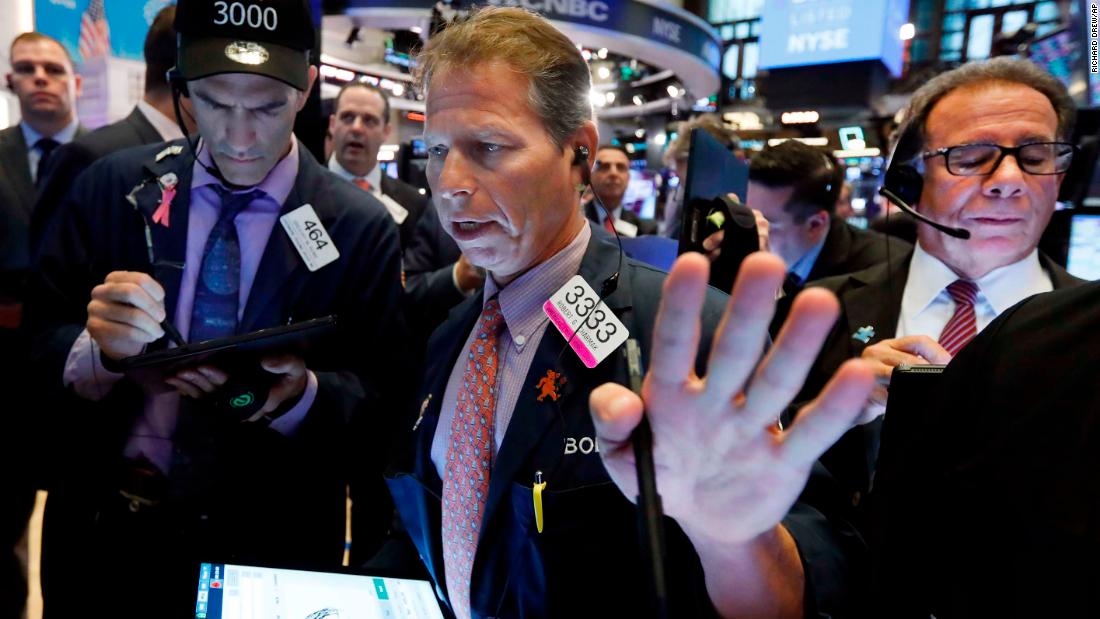
The Chinese government devalued the yuan to fall below its 7-to-1 ratio with the US dollar for the first time in a decade Monday. A weaker currency could soften the blow the United States has dealt China with its tariffs.
The cheaper yuan ignited fear on Wall Street that the United States would respond with even higher tariffs, prolonging the standoff with China and potentially weakening the global economy. Investors are particularly concerned that the Trump administration could try to devalue the dollar, sparking a currency war that could weaken Americans' purchasing power.
"Risks of Trump intervening in foreign exchange markets have increased with China letting the yuan go," wrote Viraj Patel, FX and global macro strategist at Arkera, on Twitter. "If this was an all out currency war - the US would hands down lose. Beijing [is] far more advanced in playing the currency game [and has] bigger firepower."
President Donald Trump once again called China a currency manipulator on Monday, calling it a "major violation." Trump has long been calling China out for its currency management, even though the Treasury has refrained from officially labeling the country as such.
US stocks opened sharply lower, with the Dow (INDU) shedding more than 500 points shortly after the opening bell, tumbling below 26,000 points. The S&P 500 (SPX) traded nearly 2% lower, while the Nasdaq Composite (COMP) fell 2.5%.
If the Nasdaq closes lower, it will have logged its longest losing streak since November 2016, when it fell for nine-consecutive days in the lead-up to the presidential election.
The S&P 500 is on track for six consecutive down days for the first time since October, while the Dow is on track for its longest losing streak since March. Last week, the S&P 500 and the Nasdaq Composite logged their worst week of the year last week.
Hit particularly hard were tech stocks. Apple (AAPL), Intel (INTC), Microsoft (MSFT), Nvidia (NVDA) and Advanced Micro Devices (AMD) led decliners on Monday morning.
The VIX (VIX) volatility index soared more than 20%. The CNN Business Fear & Greed Index is indicating Fear.
Asian markets all fell more than 1.6% Monday, and Hong Kong's Hang Seng closed down 2.9% as protests continue in the region. In Europe, London's FTSE 100 declined more than 2%. Germany's DAX and France' Cac 40 are both down more than 1%.
The yuan weakened sharply after the People's Bank of China set its daily reference rate for the currency at 6.9225, the lowest rate since December. The central bank said in a statement that Monday's weakness was mostly because of "trade protectionism and new tariffs on China." President Donald Trump threatened a new round of tariffs on the country last week.
Devaluing the yuan is one way China has of retaliating against the tariffs. A weaker currency helps Chinese manufacturers offset the costs of higher tariffs.
Analysts at Capital Economics said the move showed that Beijing has "all but abandoned" hopes for a trade deal with the United States.
https://www.cnn.com/2019/08/05/investing/dow-stock-market-today/index.html
2019-08-05 14:00:00Z
CAIiENkiBRVcTuzLEH6nqvQT0JMqGQgEKhAIACoHCAowocv1CjCSptoCMPrTpgU
Tidak ada komentar:
Posting Komentar